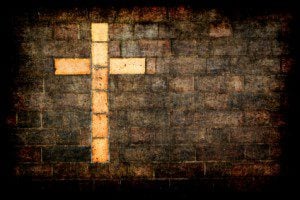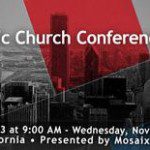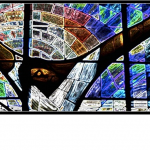 The other day my world religions class visited a mosque. The Muslim lecturer and friend of mine asked: “Is one [who is a Christian] losing Jesus when one converts to Islam?” He responded by saying that one does not lose Jesus, but gains Muhammad. It was interesting that this Muslim leader claimed that Muhammad is not greater than Jesus on his Muslim view, even though he is the final prophet. According to the lecturer, the reason why Muhammad is seen as the greatest of the prophets is because the prophetic import of his teaching is universal and final, not local or temporally conditioned. Moreover, he established his community of followers during his life. So, the finality occurred during his life, not after it. According to the Muslim leader, Muhammad’s life is so well documented during his life that one has sufficient authority for all teaching and practice. Given that Islam is not on this Muslim leader’s view a new religion, but the continuation and fulfillment of all true religion, its finality is not one of qualitative superiority, but of quantitative fulfillment by way of succession—bringing everything together. In fact, according to the Muslim lecturer, the first pillar—Declaration of Faith—is not a distinction, but a reminder: Muhammad is not the Messiah, as in equal with God (deified); rather, Muhammad is God’s messenger.
The other day my world religions class visited a mosque. The Muslim lecturer and friend of mine asked: “Is one [who is a Christian] losing Jesus when one converts to Islam?” He responded by saying that one does not lose Jesus, but gains Muhammad. It was interesting that this Muslim leader claimed that Muhammad is not greater than Jesus on his Muslim view, even though he is the final prophet. According to the lecturer, the reason why Muhammad is seen as the greatest of the prophets is because the prophetic import of his teaching is universal and final, not local or temporally conditioned. Moreover, he established his community of followers during his life. So, the finality occurred during his life, not after it. According to the Muslim leader, Muhammad’s life is so well documented during his life that one has sufficient authority for all teaching and practice. Given that Islam is not on this Muslim leader’s view a new religion, but the continuation and fulfillment of all true religion, its finality is not one of qualitative superiority, but of quantitative fulfillment by way of succession—bringing everything together. In fact, according to the Muslim lecturer, the first pillar—Declaration of Faith—is not a distinction, but a reminder: Muhammad is not the Messiah, as in equal with God (deified); rather, Muhammad is God’s messenger.
I was struck by what this Muslim leader said. One of the questions I raised came in response to his claim that a Christian does not lose Jesus in converting to Islam. I asked, “Could a Christian say that the Muslim who converts to Christianity does not lose Muhammad, but gains Jesus?” My Muslim friend objected, since for him that would entail accepting the doctrine of the Trinity, which he said Muslims reject. It would also entail for him affirming Jesus’ death by crucifixion, which he also rejects.
The exchange showed how important it is to get clear on the meaning of terms. We need to be clear on what we mean by Jesus, Christian, and Muslim, for example. Certainly, my Muslim friend and I hold to different definitions of Jesus and Christian, and view the cross in dramatically different terms. For my Muslim friend, a true prophet could not die on the cross, whereas for me, the great prophet Jesus died on the cross to bring about a new order of reality in his resurrection.
Certainly, the cross is not the only issue that generally separates Christians and Muslims. Nonetheless, it is certainly central to the discussion. Here I am reminded of Lesslie Newbigin’s claim in The Gospel in a Pluralist Society:
If it were true, as the Qur’an affirms, that Jesus was not crucified, then indeed he would simply be one of the messengers in the series that culminates in Muhammad. But the earthly mission of Jesus ended on a cross. The corn of wheat had to fall onto the ground and die. The new reality born of that dying, the new creation of which the risen body of Jesus is the foretaste, is of a different nature. It is not simply a prolongation of the life of Jesus. It is the beginning of a new epoch in human history in which the guiding clue is held in trust for all by that community which lives by the life of the crucified and risen Jesus.[1]
According to Newbigin, the cross conveys finality—death to the old order of life. The resurrection of Jesus from the dead reveals a new epoch. The Christian community participates in the life of the crucified and risen Jesus. There can be no going back to the old order—life lived prior to and apart from Jesus’ crucifixion and resurrection. Rather than converting to some other religious tradition, we are converted anew each day as the Christian community as we live into the reality of Jesus as the Alpha and Omega (Revelation 22:13).
While for Islamic scholar Daniel W. Brown, it is disputed that the Qur’an denies the crucifixion, still he argues,
The cross remains the point at which Islam and Christian theology clash not just because the Qur’an denies the crucifixion (a disputed point), or because Muslims reject its historicity (some do not), but because the cross, viewed as the ultimate self-manifestation of God, demands a response of faith—Jesus is Lord—that the Muslim reserves for the revelation of the Qur’an. Ultimately, Muslims and evangelical Christians are divided over whether the character of God is most clearly revealed in a perfect life culminating in redemptive death or in a perfect book giving rise to a perfect life.[2]
What difference does it all make for Christians that we have been converted to the new order that arises out of the death of the resurrected Jesus? If the character of God is most clearly revealed in a perfect life culminating in redemptive death, what does it entail for those converted to the Jesus way? In short, I cannot be engaged in prolonging the old order but must live according to the new order of being. Easier said than done. While short and succinct, it will take a great deal of unpacking with one’s life to get at the contrast between the old and new orders. With this in mind, we must ask: what is the old order, and what is distinctive about the new? More to come.
This piece is cross-posted at The Institute for the Theology of Culture: New Wine, New Wineskins and at The Christian Post.
[1]Lesslie Newbigin, The Gospel in a Pluralist Society (Grand Rapids: William B. Eerdmans Publishing Company, 1989),
[2]Daniel W. Brown, “Clash of Cultures or Clash of Theologies? A Critique of Some Contemporary Evangelical Responses to Islam,” in Cultural Encounters: A Journal for the Theology of Culture, vol. 1/1 (Winter 2004), p. 84.













